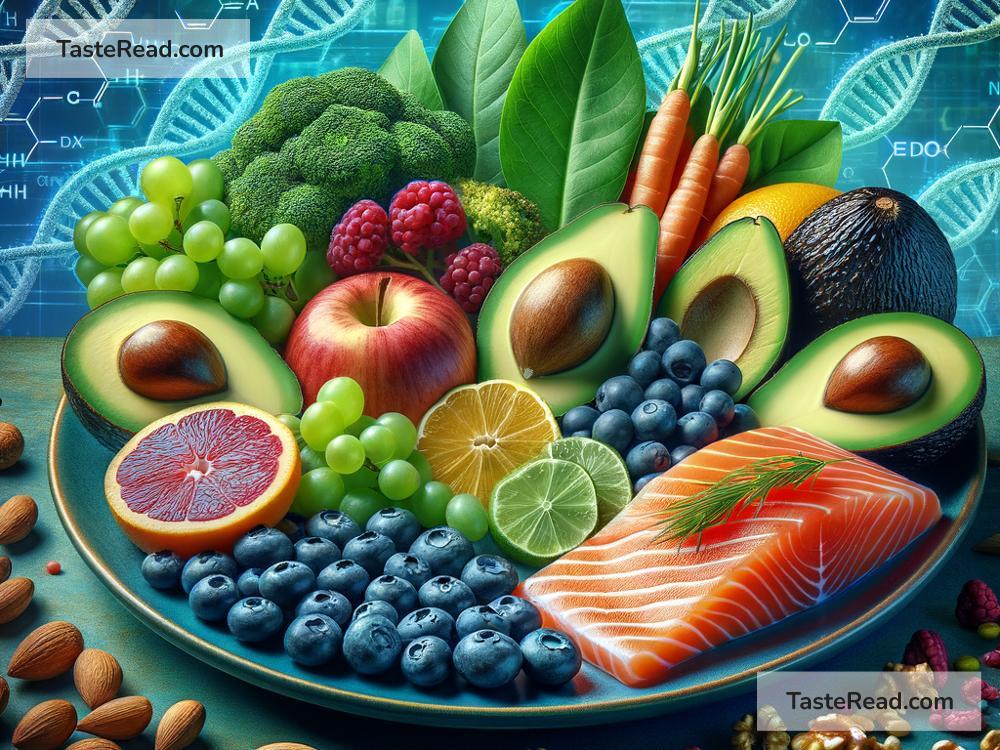The Impact of Food Nutrigenomics on Nutrition: Unlocking the Power of Your Genes
In recent years, a fascinating field of science called nutrigenomics has been making waves in the world of health and nutrition. But what exactly does it mean? Nutrigenomics is a branch of science that studies how our genes interact with the foods we eat. It explores how food can influence our genetic makeup and how our genes, in turn, affect the way our bodies process nutrients. This groundbreaking area of research has the potential to revolutionize how we think about eating for optimal health.
What Is Food Nutrigenomics?
To understand nutrigenomics, let’s break it down into simpler terms. Think of your body as a machine, and your DNA as the instruction manual that tells the machine how to work. Genes are like specific instructions in that manual—they control how your body operates, grows, and handles daily functions. Nutrigenomics studies how these genetic instructions respond to the foods you eat.
While traditional nutrition advice often provides generic guidelines for everyone (such as “eat more fruits and vegetables” or “reduce sugar intake”), nutrigenomics recognizes that one-size-fits-all advice may not work for everyone. Your genetic makeup is unique, which means your body responds to food in different ways compared to someone else’s. For example, a person who’s lactose intolerant has a genetic variation that makes it difficult for them to digest dairy products. Nutrigenomics aims to provide personalized nutritional advice based on your specific genetic traits.
How Does Nutrigenomics Impact Nutrition?
-
Personalized Diet Plans
Nutrigenomics can help create tailored diets based on your DNA. Scientists and dietitians can study your genetic profile to determine which foods will be most beneficial to you. For example, some people might process fats better than carbs, while others may need to focus on increasing fiber intake. By understanding your genetic blueprint, you can craft a diet that boosts your energy, prevents disease, and supports overall health. -
Preventing Chronic Diseases
Many chronic illnesses, such as heart disease, diabetes, and obesity, are influenced by both genetics and lifestyle choices. Nutrigenomics can help identify genetic predispositions—potential vulnerabilities that make you more likely to develop certain conditions. Armed with this knowledge, you can make healthier choices to offset your genetic risks. For instance, if your genes suggest you’re prone to high cholesterol, you may benefit from eating fewer saturated fats and more heart-healthy foods like nuts, fish, and olive oil. -
Improving Weight Management
Everyone’s metabolism works differently, and your genes play a big role in determining how efficiently your body burns calories or stores fat. Nutrigenomics can be used to uncover why certain diets work for some people but fail for others. This information can guide you toward a weight management strategy that’s more effective for your body type. -
Optimizing Nutrition for Athletes
Athletes and fitness enthusiasts are increasingly turning to nutrigenomics for ways to enhance their performance. Whether you’re a professional athlete or someone who enjoys weekend workouts, understanding how your body metabolizes nutrients can help you decide what to eat for better endurance, recovery, and strength. For example, some genetic profiles may require more protein for optimal muscle development, while others might need to avoid excess carbs for better energy levels. -
Understanding Food Sensitivities
Food intolerances and sensitivities are often tied to genetics. Nutrigenomics can reveal why certain foods don’t sit well with you. By pinpointing the root cause of these issues, this science can guide you toward a diet that avoids trigger foods while ensuring you get all the nutrients you need.
Real-World Applications of Nutrigenomics
The science of nutrigenomics is already being applied in several areas. For example, genetic testing kits designed for consumers are becoming more widely available. Companies offering these services allow individuals to send in saliva samples, which are analyzed for genetic markers related to diet and health. Once your results are ready, you receive personalized advice on what foods to eat or avoid based on your genetic makeup.
Dietary recommendations based on nutrigenomics are also being used in medical settings. Doctors and nutritionists may use genetic insights to develop treatment plans for patients with specific health concerns, such as autoimmune disorders or metabolic conditions.
While nutrigenomics holds incredible promise, it’s important to note that the science is still evolving. Genetic influences are just one piece of the puzzle when it comes to health and nutrition. Lifestyle choices, environment, and mental well-being all play major roles, too.
The Benefits and Challenges of Nutrigenomics
The benefits of nutrigenomics are clear: it helps personalize nutrition, improve health, and prevent disease. By understanding your genetic tendencies, you can make smarter food choices that align with what your body truly needs.
However, there are challenges as well. For one, genetic testing and nutrigenomic services can be expensive, making them less accessible to everyone. Additionally, the science is complex, and not all genetic factors related to nutrition are fully understood yet. It’s also important to avoid oversimplifying genetic data; genes are just one of many factors influencing health.
Final Thoughts
Food nutrigenomics is an exciting area of science with the potential to change how we approach nutrition. By combining genetics with dietary insights, it empowers people to make personalized, evidence-based decisions about their health. While there’s still more to learn, the possibilities are immense—from preventing diseases to improving athletic performance and even managing weight.
As research advances, nutrigenomics could one day become a regular part of how we create diets, treat illnesses, and optimize our health. For now, it’s a reminder that every bite we take has the power to do more than just fill our stomachs—it can unlock the secrets of our DNA and guide us toward a healthier future.


